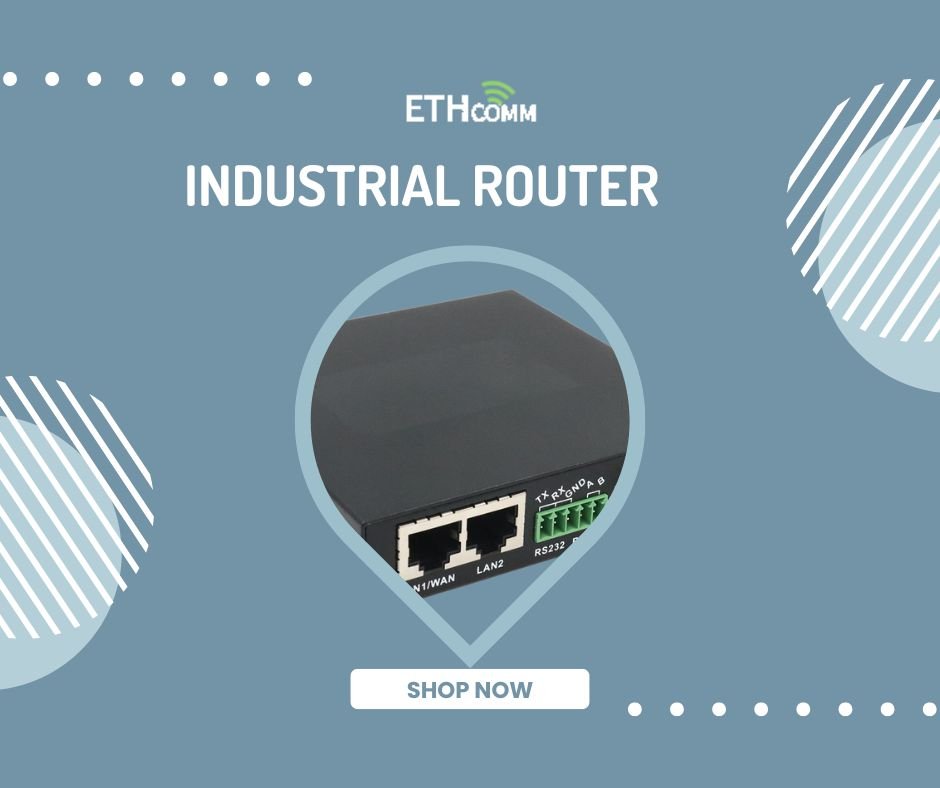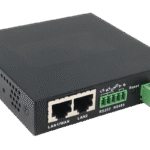Industrial Cellular Router: The Ultimate Guide for Modern Connectivity

In today’s rapidly evolving digital landscape, connectivity is the backbone of every industry. Whether it’s manufacturing, logistics, energy, or smart cities, reliable and secure internet communication plays a vital role in ensuring smooth operations. One of the most crucial technologies enabling this digital transformation is the Industrial Cellular Router.
This comprehensive guide will take you through everything you need to know about industrial cellular routers—their functions, benefits, use cases, and how to choose the right one for your business.
What is an Industrial Cellular Router?
An industrial cellular router is a rugged networking device designed to connect machines, systems, or remote sites to the internet using 4G LTE, 5G, or other cellular networks. Unlike consumer-grade routers, these routers are built for harsh environments, offering enhanced durability, strong signal stability, and advanced security features.
They enable industries to access real-time data, manage remote assets, and maintain uninterrupted communication even in areas where wired internet is not available.
Why Industrial Cellular Routers Are Essential Today
With the growth of IoT (Internet of Things) and Industry 4.0, industries require always-on, secure, and flexible internet solutions. Traditional wired networks are often limited by coverage, cost, and deployment time. This is where cellular routers shine:
Quick Deployment: No need for complex cabling—just plug and play.
Remote Connectivity: Ideal for locations without fiber or broadband.
Mobility: Ensures internet access for moving assets such as vehicles and ships.
Scalability: Easy to expand as the network grows.
Key Features of Industrial Cellular Routers
When choosing an industrial cellular router, here are some critical features to look out for:
1. Rugged Design
Built to withstand extreme temperatures, dust, vibrations, and humidity, making them suitable for tough industrial environments.
2. Multiple Network Support
Compatibility with 4G LTE, 5G, and fallback to 3G/2G ensures connectivity even in areas with weak signals.
3. High Security
Advanced VPN, firewall, encryption, and remote management tools keep data safe from cyber threats.
4. Dual SIM & Failover
Dual SIM slots allow automatic failover, ensuring continuous connection in case one carrier fails.
5. Remote Management
Centralized monitoring and control via cloud platforms for easy troubleshooting and updates.
6. Industrial Protocol Support
Support for Modbus, MQTT, OPC UA, and other industrial protocols, allowing seamless machine-to-machine communication.
Benefits of Using Industrial Cellular Routers
Implementing an industrial cellular router brings significant advantages:
Uninterrupted Connectivity: Keeps mission-critical operations running without downtime.
Cost Savings: Eliminates expensive wired infrastructure in remote areas.
Enhanced Mobility: Perfect for mobile applications such as fleets and smart transportation.
Scalable Solutions: Easily expand connectivity across multiple sites.
Improved Security: Reduces risks of cyberattacks with advanced security mechanisms.
Common Use Cases of Industrial Cellular Routers
1. Smart Manufacturing (Industry 4.0)
Factories use routers to connect machines, sensors, and control systems, enabling predictive maintenance and automation.
2. Energy and Utilities
Power plants, solar farms, and water treatment facilities rely on routers for remote monitoring and SCADA systems.
3. Transportation and Logistics
Fleet operators use cellular routers for GPS tracking, real-time updates, and passenger Wi-Fi.
4. Oil & Gas Industry
Routers provide secure communication in remote oil rigs and pipelines.
5. Smart Cities
Deployed in traffic lights, surveillance systems, and public Wi-Fi to enhance urban connectivity.
6. Retail and Banking
ATMs and POS systems use routers to ensure secure and fast transactions.
Industrial Cellular Router vs. Commercial Router
| Feature | Industrial Cellular Router | Commercial Router |
|---|---|---|
| Durability | Rugged, extreme conditions | Indoor use only |
| Network Options | 4G, 5G, fallback support | Mostly Wi-Fi only |
| Security | Advanced industrial-grade | Basic home-level |
| Management | Remote centralized control | Limited features |
| Applications | Industrial, IoT, SCADA, mobility | Home/office use |
Clearly, industrial routers are purpose-built for industries, while consumer routers are limited to residential or light office setups.
Choosing the Right Industrial Cellular Router
When selecting a router, businesses should consider:
Network Compatibility (4G, 5G, fallback support)
Environmental Conditions (temperature, dust, vibration tolerance)
Data Throughput (speed and capacity requirements)
Security Features (VPN, firewall, encryption)
Protocol Support (for IoT and industrial systems)
Scalability (future expansion needs)
The Role of 5G in Industrial Cellular Routers
The rise of 5G technology has revolutionized industrial routers by offering:
Ultra-Low Latency: Ideal for real-time applications like autonomous vehicles.
High Bandwidth: Supports massive data transfer for IoT sensors.
Network Slicing: Allows customization of bandwidth for specific applications.
Enhanced Reliability: More stable connections compared to 4G.
This makes 5G-enabled routers a game changer for industries looking to embrace digital transformation.
Challenges of Industrial Cellular Routers
Despite their benefits, businesses may face challenges:
High Initial Investment compared to commercial routers.
Carrier Dependency as performance depends on network availability.
Security Risks if not configured properly.
Complex Management requiring skilled IT teams.
However, with the right setup, these challenges can be minimized significantly.
Future Trends in Industrial Cellular Routers
The future looks promising with new trends emerging:
Integration with AI and Edge Computing for smarter decision-making.
5G Private Networks offering dedicated and secure connectivity.
Increased IoT Adoption driving demand for reliable industrial networks.
Cloud-Based Management Platforms making remote operations easier.
Challenges of Industrial Cellular Routers
Despite their benefits, businesses may face challenges:
High Initial Investment compared to commercial routers.
Carrier Dependency as performance depends on network availability.
Security Risks if not configured properly.
Complex Management requiring skilled IT teams.
However, with the right setup, these challenges can be minimized significantly.
Conclusion
An industrial cellular router is no longer just a networking device—it is a critical enabler of digital transformation. From manufacturing to transportation and energy, these routers provide reliable, secure, and scalable connectivity that traditional networks cannot match.
As industries continue to embrace IoT, 5G, and automation, the importance of industrial cellular routers will only grow. Choosing the right solution ensures your business stays connected, competitive, and future-ready.
Frequently Asked Questions (FAQs)
1. What is the difference between an industrial and commercial router?
Industrial routers are rugged, secure, and built for harsh environments, while commercial routers are designed for home or office use with limited durability.
2. Are industrial cellular routers secure?
Yes, they come with firewalls, VPN support, and encryption protocols, making them highly secure for industrial applications.
3. Do industrial routers work with all carriers?
Most industrial routers are carrier agnostic and support multiple SIM cards, allowing you to switch providers as needed.
4. Can industrial routers be used in vehicles?
Absolutely. Many are designed for fleet management, public transportation, and logistics, offering reliable connectivity on the move.
5. Are 5G industrial routers worth the investment?
Yes, if your applications require high speed, low latency, and future-proof connectivity, investing in a 5G-ready industrial router is a smart choice.
6. How long do industrial routers last?
On average, industrial routers are built to last 5–10 years, even in harsh environments, thanks to their rugged design.
7. Can I manage industrial routers remotely?
Yes, most come with cloud-based management platforms for monitoring, troubleshooting, and updating remotely.
Newsletter
Subscribe to receive the latest industrial connectivity insights and product updates.
